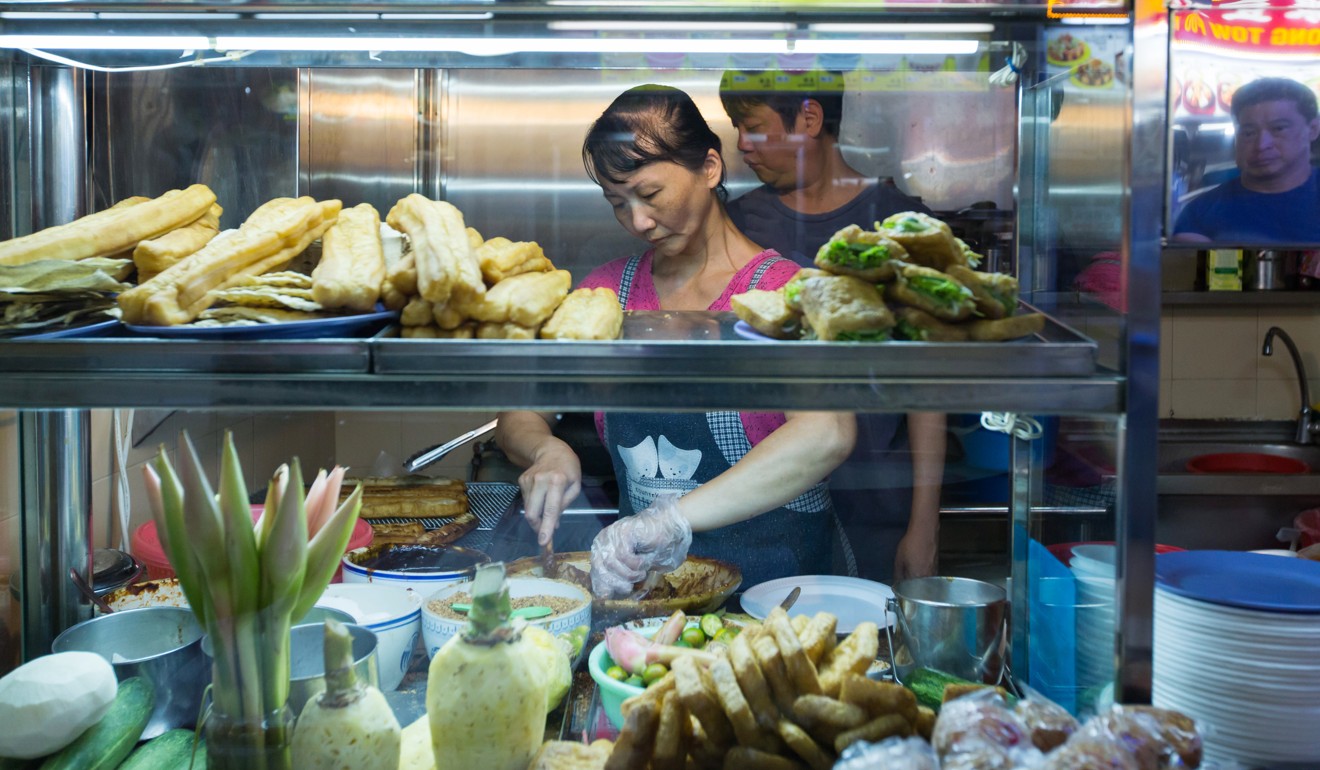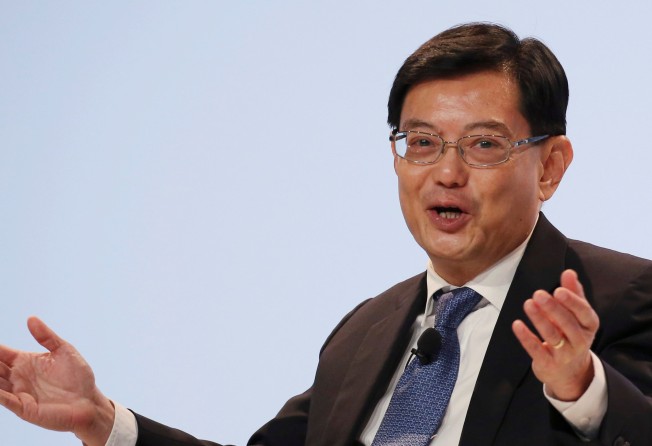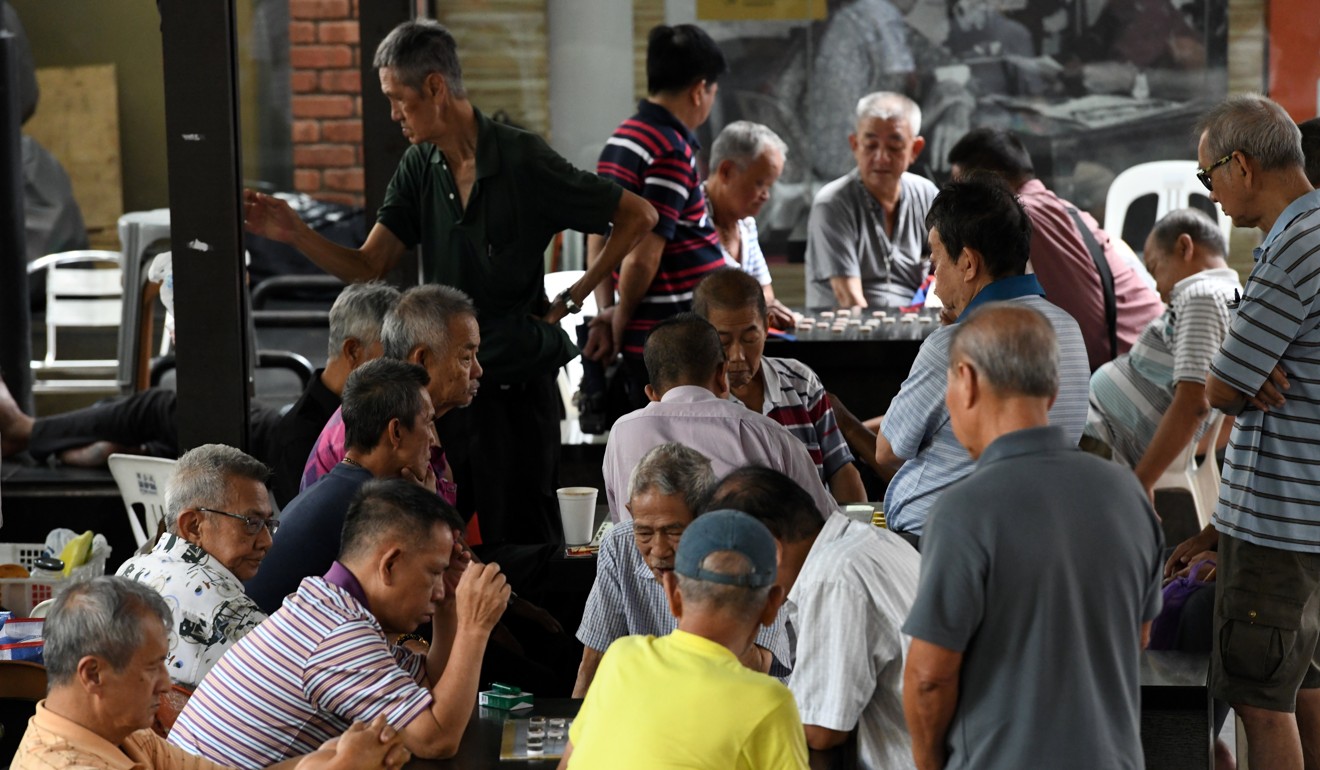
Singapore budget: Health care package for elderly, foreign worker restrictions announced
- Singapore will boost spending on health care for its ageing population, give some citizens a tax rebate and tighten restrictions on foreign workers
- Authorities are trying to bolster an economy that is been hit by weaker global demand and provide more support for elderly citizens, while still sticking to a tradition of fiscal prudence

Singapore unveiled an expansionary budget for the next financial year on Monday, setting aside S$6.1 billion (US$4.5 billion) for the welfare of its elderly in a generous package before an election expected as soon as this year.
Finance Minister Heng Swee Keat also announced a S$1.1 billion bonus package for all Singaporeans to mark 200 years since the former British colony’s founding, that includes vouchers, a cash bonus for lower-income workers and income-tax rebates for the middle class.
The minister opened his speech by talking about the changing global and domestic landscape and the importance of planning for the long term, while being open to diversity. Weaker demand and US-China trade tensions saw Singapore’s export-reliant economy grow at its slowest pace in more than two years in the fourth quarter.

“Budget 2019 is a strategic plan to allocate resources to build a strong, united Singapore,” Heng said. The city state needs to stay safe and continue to transform its economy, he added.
The government finance for the 2019 financial year that begins April 1 is expected to turn to a deficit of S$3.5 billion, or 0.7 per cent of gross domestic product, after a predicted surplus of S$2.1 billion for the 2018 financial year.
Analysts have said stronger fiscal impulse will also be needed to tackle heightened external pressure on the economy, including from the US-Sino trade war and Britain’s imminent departure from the European Union.
Singapore must hold its next general election by early 2021, but Prime Minister Lee Hsien Loong, eyeing retirement, has suggested it could be this year.
“The Merdeka Generation Package is a gesture of our nation’s gratitude for their contributions and a way to show care for them in their silver years,” said Heng, who been tapped to be the next leader of the People’s Action Party which has ruled the city state for over half a century without interruption.
The so-called Merdeka, or “independence” generation refers to those born in the 1950s, near the end of British colonial rule. With the second-fastest ageing population in the world after South Korea, and as pressure grows on more of the elderly to stay in the workforce beyond retirement age, the low-tax finance hub is facing rising social angst over the welfare of its aged.

It was expected the Merdeka Generation Fund would benefit about 500,000 citizens.
“Singapore must always be pre-emptive,” said Barnabas Gan, an economist with United Overseas Bank in Singapore. “We are a small nation and also there’s this urgent demand for greater expenditure for health care in light of the ageing population.” It’s all about “preparing for the next decade”, he added.
Heng said about 30 per cent of Singapore’s total budgeted expenditure for the 2019 financial year will support defence, security and diplomacy efforts and the quota for foreign workers in the services sector will be reduced in coming years.
The minister said Singapore’s reliance on foreign workers was not a long-term solution, and that the country had to calibrate policies to raise productivity. While keeping the foreign-worker quotas for manufacturing and shipping intact, companies in the services sector have to reduce the number of foreigners they hire.
Starting Tuesday, travellers going overseas will receive less relief for their spending due to “rising international travel”, Heng said. He also announced a cut to the alcohol duty-free allowances to two litres from three litres.
Here’s a look at the highlights of the 2019 budget:
Defence
Heng emphasised the increasingly uncertain geopolitical environment as he outlined a plan to allocate 30 per cent of spending to defence, security and diplomacy efforts, increasing spending by 4.8 per cent, which was “significant, but indispensable”. While Singapore is one of the safest cities in the world, “we must not be complacent”, Heng said. Beyond the threat of physical attacks, the government is focusing on cybersecurity, and will set up an agency to strengthen its capabilities.
Foreign workers
To boost productivity in food and retail businesses and reduce the dependency on overseas workers for these jobs, the government will lower the quotas for foreign workers in the services sector, starting in 2020. To help firms adjust to the policies and to bolster training for Singaporean workers, certain grants were extended for three years. Foreign-worker levies in the marine sector were deferred for another year.
Elderly support
The government announced an S$8 billion support package giving seniors support in five areas: S$100 top-up for spending on community activities and public transport; an added S$200 each year for five years for personal health care needs; additional subsidies for outpatient care and on their premiums; and a S$1,500 incentive for participation in a long-term care financing programme.
The government expected to pay out more than S$200 million a year in Community Health Assist Scheme subsidies and will increase health-care spending by more than 10 per cent, compared with revised estimates for 2018.
Consumer handouts
The budget includes a S$1.1 billion “bicentennial bonus” to commemorate the 200th anniversary of Sir Stamford Raffles’ arrival on the island. Lower-income Singaporeans will be eligible for more cash, while others will benefit from a personal-income tax rebate of as much as S$200 for the 2019 tax year. For families with school-age children and those close to retirement, additional cash will be made available.
Innovation
As part of its efforts to build a high-skilled technology workforce and industry, the government outlined a range of measures to support start-ups and support small businesses going digital. These include an “Innovation Agents” programme that will be set up for industry professionals to serve as mentors to Singapore firms on a two-year basis; an additional S$100 million (US$73.8 million) to be allocated to a fund meant to scale up Singapore firms and boost their presence abroad; and simplifying loans for small- and medium-sized enterprises.
Environment
Heng spoke at length about the importance of planning for climate change, saying the government was studying its implications “carefully” and would have to “invest more”. It expected to increase spending on the environment and water resources by almost 29 per cent. Singapore will apply a carbon tax on this year’s emissions and double its excise duty for diesel taxes to 20 Singapore cents per litre with immediate effect.